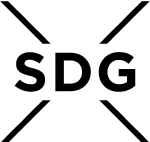Identity markers — Gender, sexual orientation, race, caste, disability, faith, and age, mediate individuals’ access to and experience of SDG programmes and services around the world. Programmes in their design and intent often do not include explicit focus on differential impacts on or mainstream the experiences of marginalized communities. This evidence showcase will feature speakers who will present 10 innovative research papers that have looked at SDGs and intersectional inclusion/exclusion and have produced relevant and interesting insights on the subject. Each presenter will have 5 minutes to present the themes the research project addresses, it’s design and the key insights it has produced. This session is being co-organised by J-PAL South Asia and Ideas for India.
Three types of studies will be featured during this session:
- Studies that look at the quantification or identification of prejudice/bias (i.e. discriminatory attitudes towards members of under-represented/marginalised groups, geographic segregation along the lines of caste/religion/race/gender/indigenous populations etc.).
- Studies that have produced evidence on interventions to mitigate identified biases/discriminatory practices for e.g. inter-group contact to improve religious cohesion or caste-cohesion, or gender-transformative programming in health and financial inclusion.
- Papers which make concerted efforts to study differential effects of SDG programmes (across any sector) for different groups. These could also be research methods papers which provide ideas on incorporating intersectionality into research design ex-ante for e.g. gender, caste, religion etc.
Moderator for the session: Urvashi Wattal (Senior Policy and Training Manager, J-PAL South Asia)

